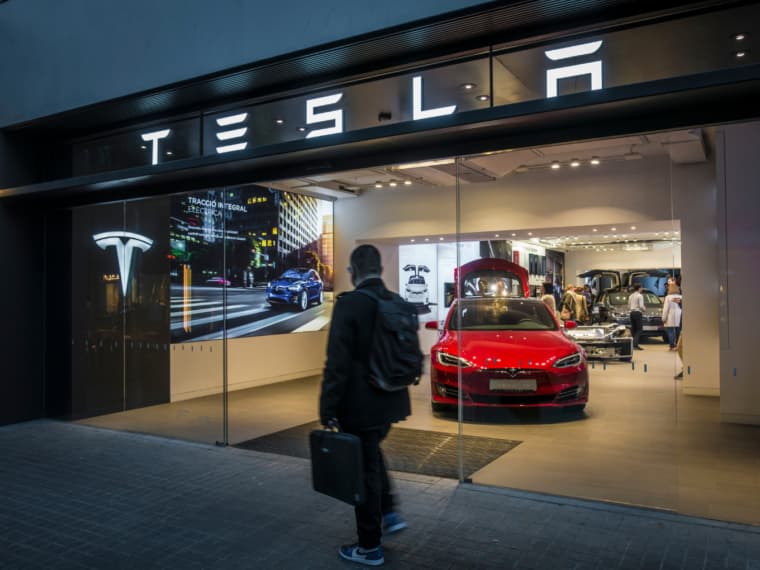
Tesla representatives will meet Union Commerce Minister Piyush Goyal later this month in New Delhi to discuss plans for land allotment
The deliberations will also revolve around setting up a supply chain in the country for producing a new Tesla model priced at INR 20 Lakh
The bonhomie comes a year after Tesla boss Elon Musk criticised the Indian government over high import duty on EVs
Speeding up its ‘Make in India’ plans, EV manufacturer Tesla’s representatives are reportedly slated to meet Union Commerce Minister Piyush Goyal later this month in New Delhi.
A Tesla team will meet Goyal to discuss issues related to land allotment for establishing a factory in the country, Reuters reported citing sources.
The deliberations will also revolve around setting up a supply chain in the country for producing a new Tesla model priced at $24,000 (INR 20 Lakh).
The report said that the company has expressed interest in setting up a manufacturing plant that will solely be dedicated to producing the new low-cost model for exports as well as domestic consumption.
If the plan works out, the Indian plant could potentially build the cheapest cars in Tesla’s kitty. For context, Tesla prices its base model (Model 3 sedan) $45,000 onwards in the US, while the same EV sells for $32,200 (lowest price point) in China. Effectively, Tesla will be able to slash costs by nearly 25% compared to China-manufactured cars.
The meeting with Goyal will be the first high-level talks between the Indian government and the automaker since Prime Minister Narendra Modi met Tesla boss Elon Musk in June this year. Back then, Musk expressed confidence that Tesla would soon debut in India and said it intended to make significant investments in the country.
The development also comes barely a week after Tesla representatives held talks with Indian officials to bring its auto parts and electronics supply chain to India.
Tesla’s India Story
The resumption of talks marks a major reversal in fortunes of Tesla which was locked in a tussle with the Indian government last year. While the company was seeking lowering of import duties on its cars, the Indian government was not in favour of it. The Centre directed the company to set up a manufacturing plant in the country for availing tax benefits.
While much of the details are yet to be ironed out, Tesla setting up its plant in the country could give a major boost to India’s reputation as a manufacturing hub. The pivot to India could also enable Tesla to avail various incentives for manufacturing EVs and batteries under the production-linked incentive (PLI) schemes.
However, the union government has largely shied away from offering special concessions for Tesla in India, adding that states are free to make accommodations for the car maker as per their wish.
If the proposal goes through, Tesla will join a growing list of foreign companies such as Apple and Xiaomi who have already moved a part of their manufacturing from China to India. The move to India has largely been led by growing tensions between China and the US, and the attractive incentives offered by the Centre to boost domestic manufacturing.
Other companies such as Google have also been exploring the possibility of shifting a part of their production to India.
The talks with Tesla come in the backdrop of the Indian government rejecting a $1 Bn proposal filed by Chinese EV giant BYD Motors and Megha Engineering and Infrastructures Ltd (MEIL) to set up a four-wheeler manufacturing plant in the country.
Tesla will vie for a pie of the Indian four-wheeler electric vehicle space, which has seen massive adoption in the past few years. While the four-wheeler EV segment is largely led by homegrown players such as Tata and Mahindra Electric, global players such as MG and Hyundai have jumped into fray.
With EV penetration in the country at a mere 1.1% at the end of 2022, India presents an attractive opportunity for both local and foreign players to sell their offerings in the country. The size of the homegrown EV market is projected to grow to $113.99 Bn by 2029 from $3.21 Bn in 2021.































 Ad-lite browsing experience
Ad-lite browsing experience